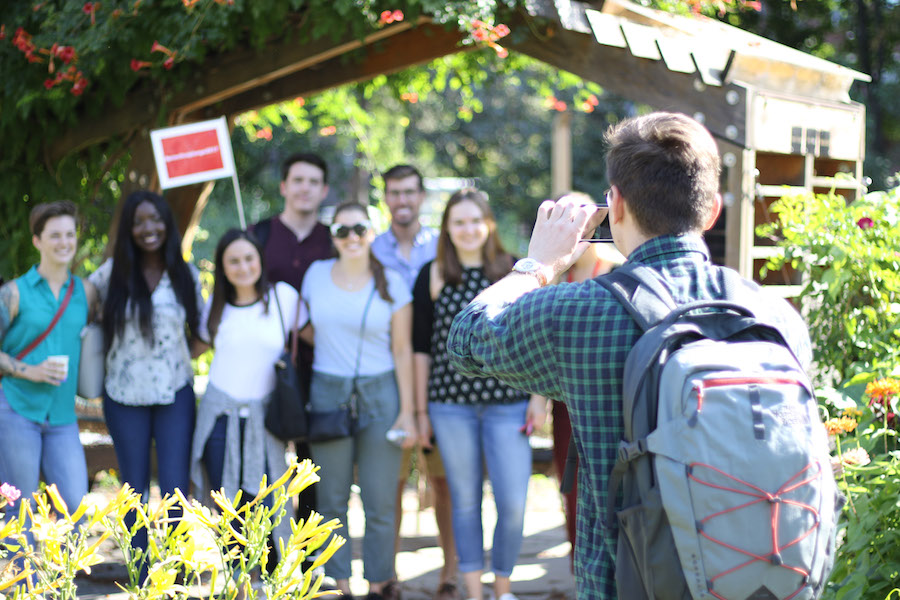Building Momentum: A Successful 2017 Orientation.
The fall semester is off to an incredible start. The Activist Lab participated in the orientation of more than 300 new students, continuing our role as a bridge to the local community. We provided several tours around our neighborhood including to the Blackstone Community Center, the Suffolk County Sheriff’s Department, The National Emerging Infectious Disease Laboratories and Boston Health Care for the Homeless. A bus tour led our new colleagues through the history of Boston’s neighborhoods and the health disparities that can exist a few blocks apart. The field service days brought groups of students to lend a hand at Women’s Lunch Place, the Pine Street Inn shelter, the Greater Boston Food Bank, and the Salvation Army.
And of course, one of our favorite events, Practice Plunge was wildly successful. For those who couldn’t participate, Practice Plunge is an interactive activity in which participants get to explore our local community, think and experience public health, all while connecting with new classmates. Each team was asked to fill out several questions and to take photos of their designated location. These locations included playgrounds, community gardens, traffic intersections, and even vending machines. Once the survey was complete, the teams returned to campus and debriefed with Associate Dean of Practice, Harold Cox. What did they learn? Students made their first public health policy decision through a poll led by Dean Cox, where they saw first hand that there are always 2 sides to policy making and that the “right answer” isn’t always clear.
Candice B is the new Activist Lab Student Engagement Intern and, as a new student at SPH, participated in the events throughout orientation. Here is her take on the visit to AHOPE to learn about services for people who use needle drugs including a Narcan training to prevent opioid overdose:
“In this session, participants were given the tools to become activists in their community and feel empowered to save a person’s life. Narcan is a life-saving drug that reverses an opioid overdose. When a person is overdosing on heroin, which is often fentanyl on the streets, their central nervous system shuts down. Unlike other drugs, a person who overdoses on heroin (fentanyl) will enter into respiratory arrest, in which rescue breathing and Narcan become the only life-saving option. Currently, in Massachusetts, there is an average of 5 deaths per day due to opioid overdoses and 75 nonfatal overdoses a week. In response to the opioid crisis, The Boston Public Health Commission is providing these life-saving trainings to what are considered non-essential personnel i.e. librarians, students, teachers, etc. to expand life-saving capacities until first responders are present. The opioid crisis is a systemic issue that deserves attention at the policy level, but students and community members should feel prepared if they so choose, to save a life. If you are interested in attending a Narcan Training, please contact hmcdermott@bphc.org”
In addition to orientation, the Activist Lab sponsored an emotionally charged Dean’s Seminar-1985: Voices from the AIDS Crisis during the first week of classes. If you weren’t able to attend, be sure to watch the live stream provided by the School of Public Health. It was an inspiring way to begin a new school year for all involved.
Looking Ahead:
The Boston University Program for Global Health Storytelling brings journalists and global health specialists together to improve mutual understanding and foster collaboration. The Activist Lab is a co-sponsor for their next event, Gun Violence: Stories Behind the Numbers is taking place on September 29th. Register today!















